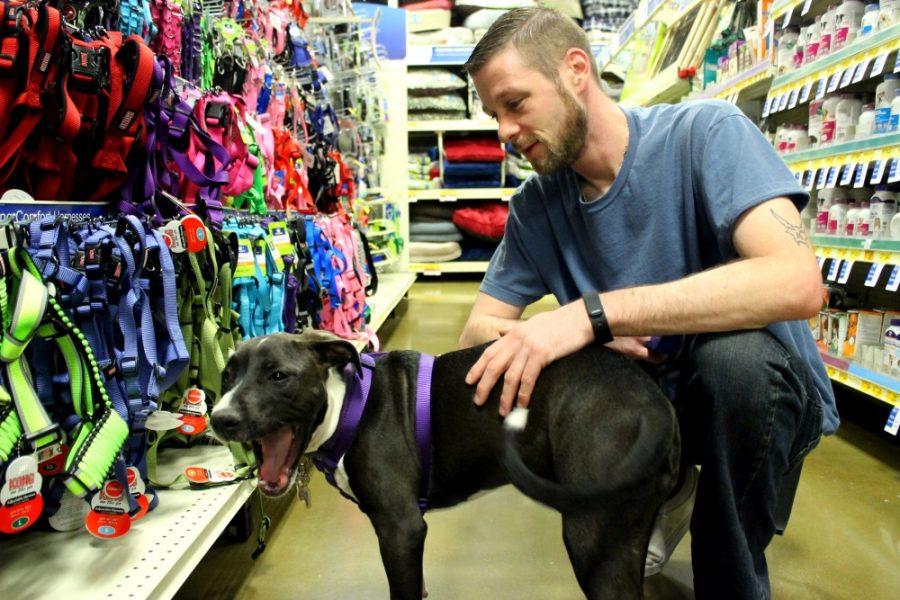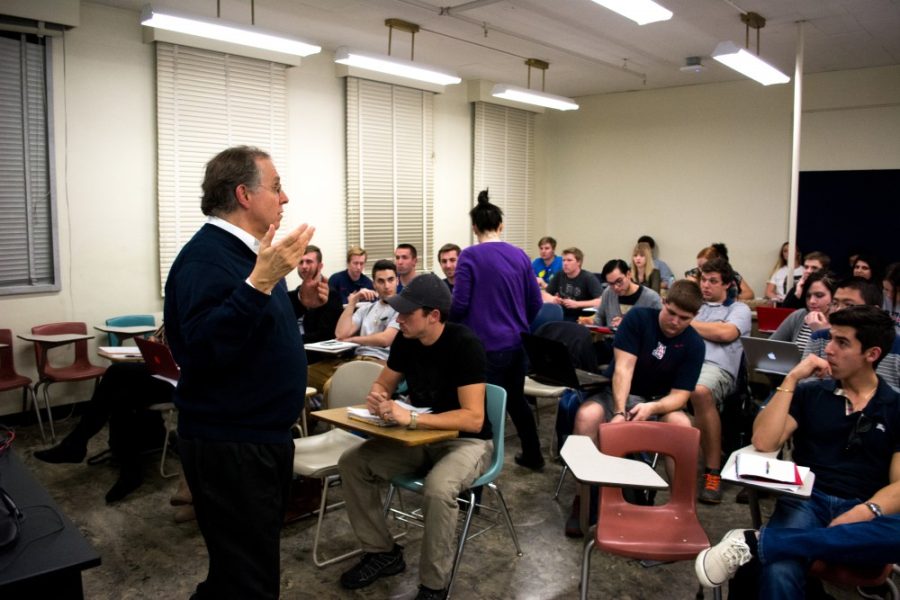Researcher Evan MacLean is leading cutting-edge research at UA’s new Canine Cognition Center in the Emil W. Haury building. The Canine Cognition Center studies the behaviors and thought processes of dogs. MacLean is a biological anthropologist and comparative psychologist and previously ran Duke University’s Canine Cognition Center.
“At first, I thought it was going to be a little foray,” MacLean said. “Now I’m at the UA starting their Canine Cognition Center.”
MacLean will be looking at two central questions: What makes human psychology unique and how and why does cognition evolve?
RELATED: De-stress from school, get out and see the Dogs of UA
“I’m motivated by questions that will take more than a lifetime to answer,” MacLean said.
Funding comes from the UA as well as a number of public and private sources, from places like the National Institute of Health to pet food companies.
MacLean runs tests on dogs similar to the tests behavioral psychologists give to children. He said that dogs function much like human children in their thought processes. The goal of the center is to see how dogs learn and how their cognition evolves and therefore infer how humans once traveled the same developmental path.
MacLean and his team will use a variety of “A-not-B tests,” like resisting the urge to search for food under the same container when the food was visibly moved to a different container location, or using different techniques to overturn the containers containing the food.
While MacLean also works with primates, he’s found that chimps and bonobos don’t spontaneously respond like humans and dogs do during cooperative communication, like pointing.
“This could be because we’ve lived alongside dogs for 30,000 years, so we have an ancient relationship,” MacLean said.
MacLean said that the canine-human relationship is strange when you consider that 40,000 years ago wolves and humans were predators at odds.
MacLean is hoping to unravel the evolution of human cognition, but there are other applications as well.
This research could help administer a type of “aptitude test” to dogs to find out which are better suited to work certain jobs.
“Fifty percent of dogs who start training for jobs fail, so this could change that number,” MacLean said. “Dogs have different skill sets, from the tiniest little chihuahua to great danes.”
Undergraduates can intern at the Canine Cognition Center, assisting in testing and data analysis. MacLean said that the internships are open to students from any department because the questions involved “have so many angles.”
RELATED: Dogs of UA: Jax and Jax relax on the mall
“It’s easy to get people involved,” MacLean said. “The benefits for us are a big team and undergraduates get hands-on experience.”
MacLean is depending on dog owners to volunteer and bring their dogs in to participate, as opposed to housing the center’s own dogs. MacLean said the hardest part of owning a set group of test animals is that it takes a considerable amount of money to feed, care for and house the animals, and it restricts research to a small subject pool. Community-sourced participants, however, are what MacLean calls a “renewable resource.”
“It’s great because it’s really, really flexible,” MacLean said. “We can choose from a range of breeds and ages. A classic model is to own a colony of a lot of things for your research. That can be a good model, but that can also be tough.”
Soon, there will be a website for dog owners to register online. Volunteers will fill out a short questionnaire about their dog, including age, name and breed. Dogs selected will then receive a date and time to bring their pet into the Center.
The Center will have a soft opening in a few months, when the construction on the five-room location is complete.
Follow Marissa on Twitter.









